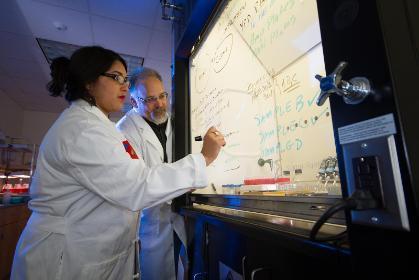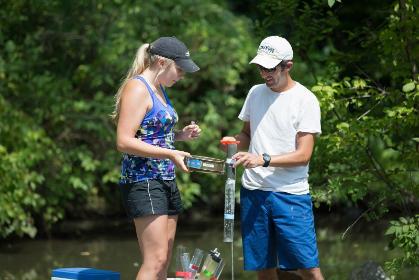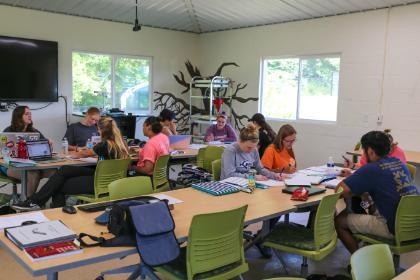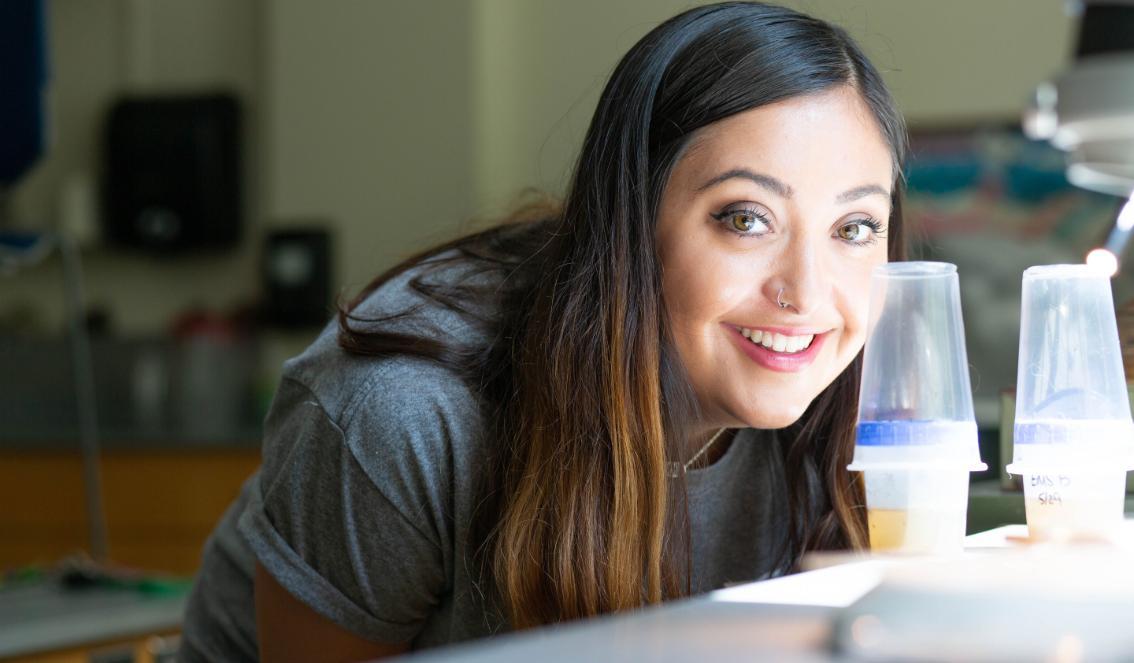

Environmental Sciences
Environmental Sciences
Explore and discover the tools you'll need to understand our complex natural world.
Join a team of curious, committed faculty and learn about the interaction of human and environmental systems. Our innovative curriculum emphasizes foundational knowledge in natural and social sciences, practical skill development and critical thinking.
Here are just a few of the jobs our Environmental Sciences alumni have:
- Environmental scientists and technicians
- Conservation Biologists
- Environmental Microbiology Analysts
- Wildlife Biologists
- Foresters
- Park Naturalists and Managers
- Natural Resources Managers
What You'll Study
- Major
- Life Sciences
- Earth Science
- Social Sciences
- Water Resources
- Minor
- Environmental Sciences
- Earth Sciences
- Geography
- Geographic Information Science
- Courses
Major
Examine complex environmental issues from an interdisciplinary perspective in one of four concentrations:
Life Sciences
You'll study how human activities affect, and are affected by Earth's living biological system.
Earth Science
You'll study the way that human activities affect, and are affected by the forces that build the land around us, including climate, water and soils.
Social Sciences
You'll study the intersections of human activities and conservation.
Water Resources
Explore the physical processes that control the movement of water above and below the surface of the Earth, in the atmosphere, and within the oceans, as well as investigate the organisms living within those waters.
Environmental Sciences
Take Introduction to Integrated Environmental Sciences or Introduction to Environmental Science and five other elective courses from our interdisciplinary major.
Earth Sciences
We use the most vital and accessible of all laboratories – the great outdoors – to learn about the world we live in. Join us as we study the interactions among earth's elements and discover why it's more important than ever to study and understand our earth.
Geography
A geographers job can lead anywhere, to the edge of a volcano where you'll study changes in soil or the top of the world measuring a melting glacier. This is the science of place and space. You'll study where things— climate, soil, earth formations, population growth, migration, urban and rural settlement development—are located on the surface of the earth, why they are there, and how people interact and manage them.
Geographic Information Science
The Geographic Information Science (GIS) minor provides students with foundational knowledge and skills in map design, spatial data collection, and analysis. Students access the latest technology, including software, mobile GIS, and drones to solve real-world problems in a variety of fields.
Learn more about Geographic Information Science.
Courses
The hallmark of the curriculum are the integrative courses. For example, Global Environmental Issues, and Environmental Planning and Management bring together the core competency knowledge and skills that will help you engage in critical thinking around environmental issues from an interdisciplinary perspective.





